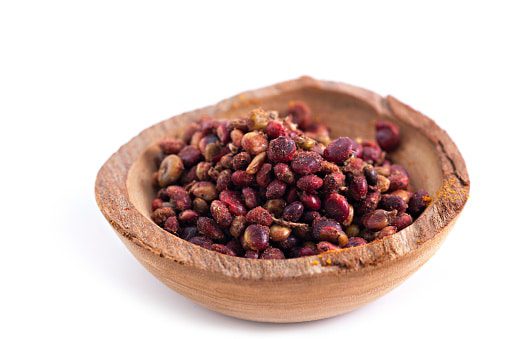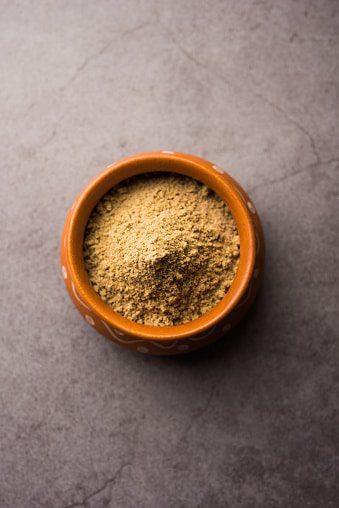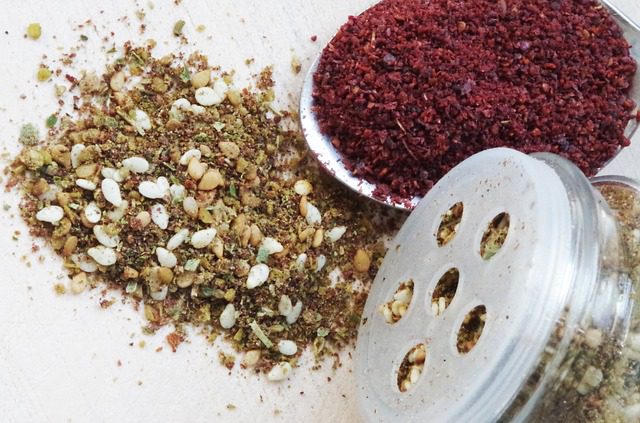Everybody knows the fact that adding the best possible flavor to your food helps to improve its taste and flavors. However, the question is – what types of additives should you use? Well, there are lots of spices to use if you wish to add more taste to your dish. One of the conventional and delectable ones would be sumac. Sumac is best known for its zesty relish that provides any food a better kick. However, there will be times when you have no sumac at your home. Or, you can utilize a sumac substitute for the individuals who are adversely affected by the zest. In case, you wish to have a good sumac substitute, the following might be of some help to you.
Table of Contents
What Is Sumac?
Sumac made from the dried and ground berries of the wild sumac blossom – this is a tart zest with a harsh, acidic flavor suggestive of lemon juice. You can use this spice to brighten up the spice mixtures, such as dressings. Apart from this, you can also use this fragment to add a pop of bold color to food before serving.

What Does Sumac Taste Like?
Sumac has a flavor regularly compared to lemons. However, the zest has a milder fruity profile that adjusts corrosiveness. Some of the trademark factors of sumac flavor include:
- Acidic flavor
- A coarse grind
- A deep purply red tone
What To Substitute For Sumac?
Sumac is one of the most important spices for lots of Middle Eastern dishes. This spice provides a tart, astringent note that can give you the best taste of chicken and fish. Besides, sumac is an essential ingredient to give your Levantine, Arabic, Turkish dishes a genuine flavor.
However, getting hold of sumac can be hard and if you are one of them, you can try any of the substitutes we have described below. The best things about these substitutes are, you can find them easily. Additionally, you might already have some of the substitutes in your spice rack as well. Here, we divide the substitutes into two categories. They are dry sumac substitutes and liquid sumac substitutes.

Let’s dig up and know more about these substitutes.
Dry Sumac Substitutes
The substitute for Dry sumac or sumac powder covers anything powdered or containing no liquid. These sumac substitutes are perfect for dry rubs. In the below section, we have described some of the best dry sumac substitutes. Check them out.
Lemon Pepper Seasoning
Lemon pepper flavoring comprises broken dark pepper and dried lemon zest. Lemon pepper substitutes are widely available. Apart from this, you can quickly combine these two ingredients yourself. A combination of these two flavors can make an amazing replacement for sumac’s tartness. In the Middle East sumac was used before the introduction of lemon.
Lemon pepper is incredible for grilled poultry. However, its most well-known application is as a seasoning for seafood. In some rare cases, lemon pepper mixes will incorporate garlic. According to some experts, if you wish to use lemon pepper as a sumac substitute, you should add a little salt to the lemon. Also, when you wish to use lemon pepper as a substitute for sumac, you must use the amount about one and half times that your recipe requires for sumac.
The Best Second Choice is Za’atar
Za’atar is a zest mix that contains sumac, which means that it will give precisely the flavor that you need. Keep in mind that sumac isn’t only an element of za’atar, it’s certainly the most noticeable flavor. These mixes will work excellently in most of the dishes that require sumac. Bear in mind, there are different za’atar blends – therefore, you should use the one that suits the overall flavor profile that you wish to serve. Remember, when utilizing this zest mix as a sumac substitute, start with the sum that your formula requires for sumac and increment to taste. Interestingly, Sumac is often used as an alternative to za’atar.
Tamarind
Tamarind is a tropical fruit that is best known for its intense acidity. It is an essential ingredient of Thai and Indian cooking. Tamarind is extremely acidic – so, use a little to replace sumac. According to some experts, you should add this fruit to your dish in small amounts until you get the wanted quality form. Its seeds help in lowering blood sugar levels as well.

Amchoor
Amchoor, also known as amchur, is dry mango powder that has an acidic flavor prepared from green mangoes. It is quite similar to the sumac seeds. What you have to do is, first, dry out the mangoes and then make them powdered to achieve the acidic taste. Amchoor is more acidic than sumac. Therefore, you need to include less amchoor than the measure of sumac as asked in the formula.

Lemon Zest And Salt
If you want something that you can easily find and prepare at home, lemon zest can be your ultimate choice. Simply add a bit of salt to the lemon zest, and after that top it off as a dry rub. This substitute doesn’t have similar colors – but still, it provides the same spicy flavor.

Liquid Sumac Substitutes
For salad dressing or dips, liquid substitutes are the best alternatives. Remember that, if you add liquid sumac substitutes to the dry rub, this might change the consistency of your meal. Continue reading the passage to know more about the liquid sumac substitutes.
Vinegar
Vinegar, just like sumac, gives you the same acid that you require for your food. Bear in mind that vinegar is more acidic than sumac. Hence, you should only add a few drops to enhance the taste of the food.
Lemon Juice
Lemon juice, known for its citrusy relish, makes for another unusual fluid substitute for tamarind. You can utilize a piece of lemons to the top of the salads for a spicy taste. However, you can use other citrus fruits, and the result can be sweeter than your expectation. If needed, you can add salt.
You can find all the above substitutes of sumac in the local supermarket or from your kitchen.

Advantages And Usage Of Sumac Substitutes
Here, we are going to explore the benefits of sumac substitutes.
Citrus Flavors Without Liquid
In case you use a powdered sumac substitute, then you nothing have to worry about the liquid juice (like lemon zest or vinegar) from breaking the density of your food. You can use the powdered sumac substitute to get a lemon flavor to dry rubs or salad. So, you can get a lemon flavor without directly using acid to pre-cooked meats.
Health Benefits
If you use a sumac substitute, you will get a lot of health benefits. It can help you to reduce your glycemic and cholesterol level. Furthermore, this is also known as a superfood that can prevent cardiovascular illnesses as well as keep your skin looking fresh.
So, these are the benefits you can get from the sumac substitute. Now, check out the tricks that can help you to use sumac substitutes wisely.

Tactics On Using Sumac Substitutes
Now, while using sumac substitutes, these are the tactics that need to follow –
- You have to ensure that you are storing your sumac substitute in cool places under room temperature. So, try to keep it correctly to delay its life expectancy.
- You will need to add a precise amount of ingredients while replacing with a sumac substitute. Indeed, even only excessively much will change its general enhancement. Therefore, you should taste the food before adding the sumac substitute.
- You will need to consider what the recipe says. If you need a bit of liquid dish, for example, dressing for salads or marinades, then you might have to add liquid sumac substitutes. On the other hand, if you wish a dry rub without ruining its taste, you should opt for powdered or dry replacement.
- Keep in mind, the taste of these substitutes is quite similar. But, they will not entirely replace the consistency of the sumac itself. You should first experiment with these substitutes and then serve them to other people.
Wrapping up
We hope this guide will help you to find a good alternative for sumac powder that you can use to make your food more delicious and spicy. Now, you can try any of the above sumac substitutes for cooking.


